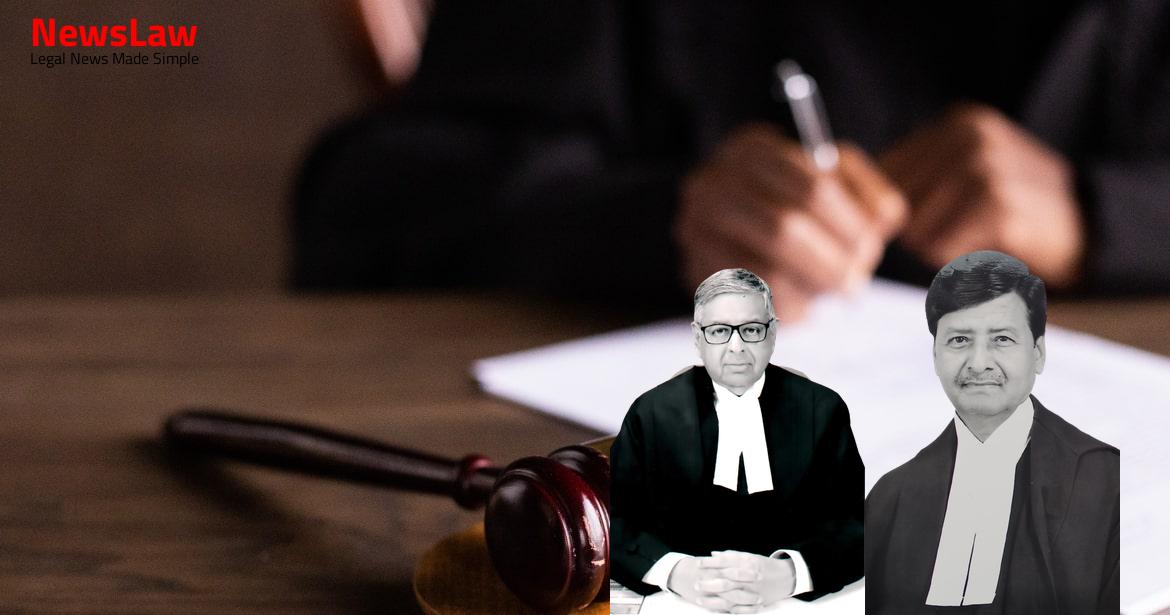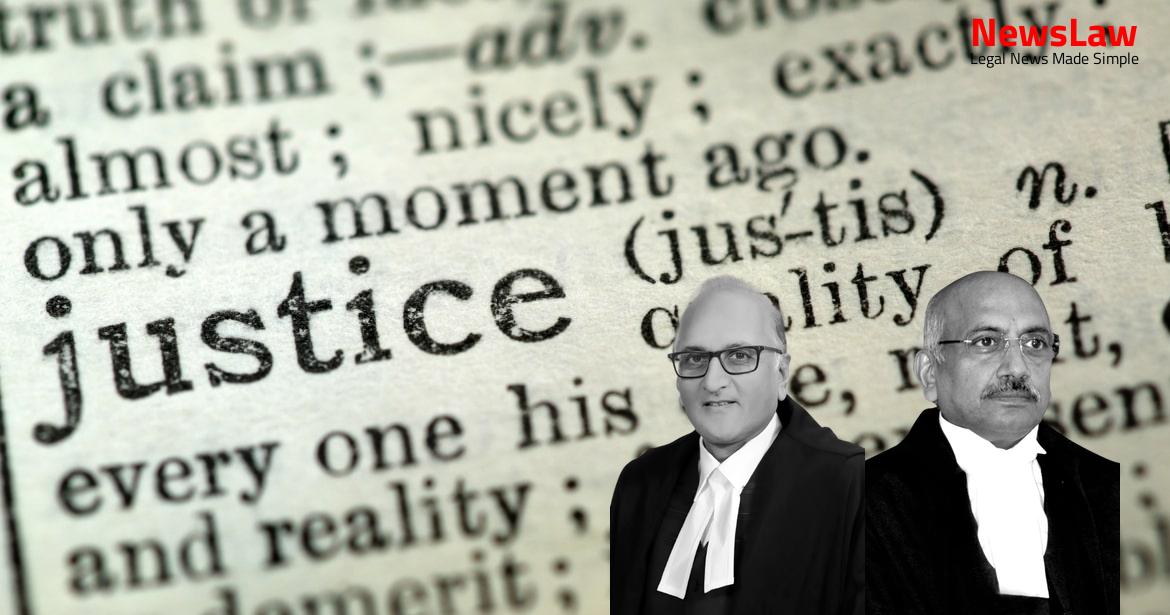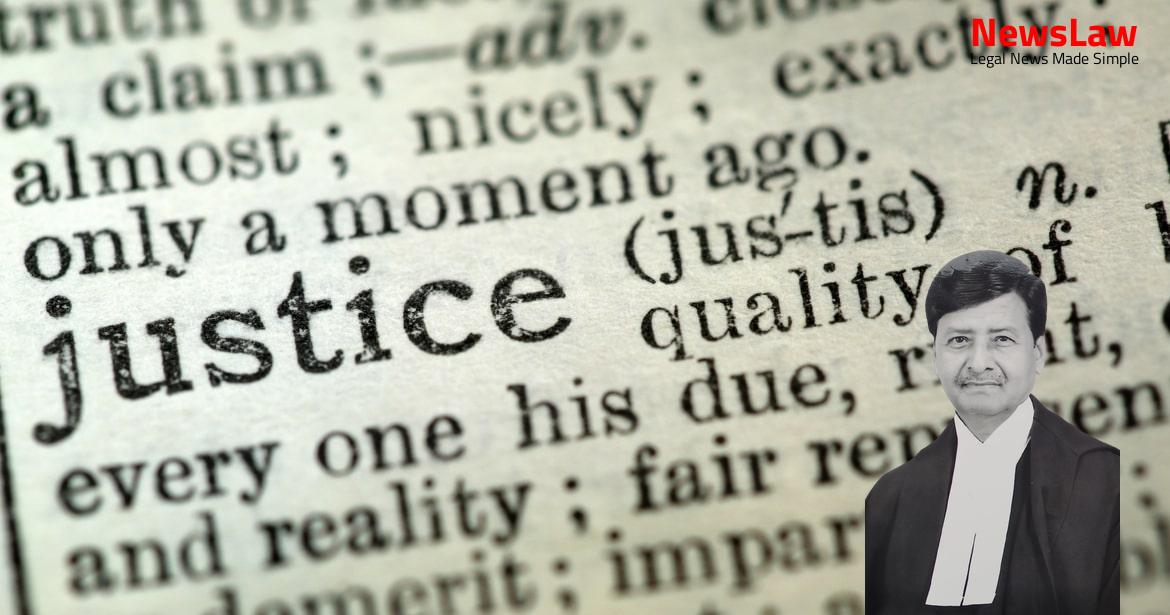In the case of State of Karnataka v. [Respondent], a significant legal battle unfolded concerning disciplinary proceedings and judicial review. The respondent, a former Police Inspector, faced charges of misconduct but was acquitted in a criminal trial, leading to a review of the disciplinary proceedings. The Tribunal and High Court overturned the dismissal from service, citing discrepancies in evidence. However, the Supreme Court intervened, highlighting errors in the lower courts’ decisions and reinstated the original order of punishment. This case underscores the nuances of judicial review in administrative matters.
Facts
- The respondent faced departmental proceedings on two charges and denied them.
- A second show-cause notice was issued to the respondent.
- The respondent was served with a charge sheet and a charge sheet was filed in the Court of Special Judge, Mysore for offences under the Prevention of Corruption Act.
- The Inquiry Officer found the charges proved against the respondent.
- The respondent was aggrieved by the order of punishment and approached the Tribunal.
- A criminal complaint was lodged against the respondent, leading to a trial resulting in acquittal.
- The respondent was dismissed from service on 30 September 2005, with the period of suspension treated as suspension only.
- An appeal filed by the respondent before the Government was dismissed on 8 September, 2006.
- The respondent was also proceeded against for misconduct in departmental proceedings.
- The State appealed against the Karnataka High Court’s order upholding the Karnataka Administrative Tribunal’s decision to set aside the dismissal of the respondent from service.
- The respondent was working as a Police Inspector at Mysore from July 31, 1997, to October 31, 1998, and a trap was laid by Lokayukta Police based on a complaint.
- High Court identified four discrepancies in the departmental proceedings.
- Similar evidence was not accepted in criminal trial, leading to unreliability of witness testimonies.
- Disciplinary Authority relied on evidence before IO to establish charges against the respondent.
- Tribunal noted discrepancy in witness testimony about water turning pink due to pen ink.
- Tribunal overturned punishment order as criminal court did not rely on witness testimony, questioning the reliance of Disciplinary Authority.
- Tribunal disagreed with IO and Disciplinary Authority on charges being proven, as no record of receiving Rs.20,000.
Also Read: Legal Analysis of Entrance Exam Regulations in AYUSH Courses
Analysis
- The finding of guilt of misconduct against the respondent was interfered with only due to discrepancies in the evidence presented by the Department.
- The discrepancies in the evidence did not negate the presence of evidence, therefore it was not a case of no evidence.
- The Inquiry Officer and the disciplinary authority both found the respondent guilty of misconduct based on the evidence presented.
- The interference in the order of punishment by the Tribunal and affirmed by the High Court was deemed to contain patent errors.
- The Tribunal and High Court failed to consider earlier judgments such as S. Sree Rama Rao and B.C. Chaturvedi, which hold relevance in this case.
- The orders passed by the Tribunal and the High Court were found to be legally flawed and therefore set aside, restoring the original order of punishment.
- The power of judicial review does not entail reevaluation of evidence as an appellate authority would do.
- Even on the basis of the decision-making process, the interference by the Tribunal and High Court with the findings of the disciplinary authority was deemed unjustified.
- An appeal before the State Government, after the orders of the Tribunal and High Court, was also dismissed.
- In the case of B.C. Chaturvedi v. Union of India & Ors., the Court emphasized that judicial review is not an appeal but a review of the decision-making process.
- The Court, in High Court of Judicature at Bombay through its Registrar v. Shashikant S. Patil & Anr., highlighted that interference in departmental authorities’ decisions is only permitted if there is a violation of natural justice or statutory regulations.
- State Bank of Bikaner and Jaipur v. Nemi Chand Nalwaya reiterated that courts should not reassess evidence in domestic enquiries if the enquiry was fair and findings were evidence-based.
- Union of India v. P. Gunasekaran clarified that the High Court cannot act as an appellate authority in disciplinary proceedings.
- Allahabad Bank v. Krishna Narayan Tewari noted that the Writ Court can interfere with disciplinary proceedings if the findings are unsupported by evidence or unreasonably arrived at.
- State of Andhra Pradesh & Ors. v. S. Sree Rama Rao emphasized that the High Court is not a court of appeal in departmental enquiries and its focus is on the procedural aspects and adherence to natural justice.
Also Read: Challenging Foreign Contribution Regulations: Legal Analysis
Case Title: THE STATE OF KARNATAKA Vs. N.GANGARAJ (2020 INSC 188)
Case Number: C.A. No.-008071-008071 / 2014



